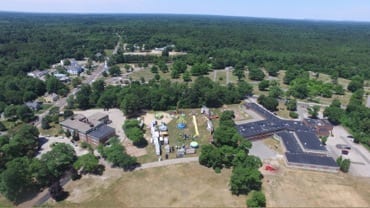Who is a member?
Our members are the local governments of Massachusetts and their elected and appointed leadership.
 As municipalities explore the potential benefits – and pitfalls – of using drones, Hanover has taken the step to become one of the first towns in Massachusetts to secure a Certificate of Authorization from the Federal Aviation Administration (FAA), according to Assistant Town Manager Tony Marino.
As municipalities explore the potential benefits – and pitfalls – of using drones, Hanover has taken the step to become one of the first towns in Massachusetts to secure a Certificate of Authorization from the Federal Aviation Administration (FAA), according to Assistant Town Manager Tony Marino.
In addition to applying for and receiving the certificate from the FAA, Hanover had five town employees receive drone pilot training from the Association of Professional Drone Pilots, a Raynham-based company that also prepared the lengthy FAA application for a certificate of authorization to fly a drone, or unmanned aircraft system (UAS). The company charged $9,000 for the training and handling the FAA application process.
Hanover had a police detective, its fire chief, two cable access employees and the director of parks and recreation receive pilot training, Marino said.
“We started with cable access to enhance our programming and offer better shots and aerial shots, taping community day events and so on,” he said. “Down the road we’re going to start using it for GIS and mapping. We can lay out mapping layers with regard to hydrants, potential problem areas. And obviously for police and fire there are advantages with thermal imaging and infrared. We’re working now on coming up with drone policies.”
Scott Pitta, president and CEO of the Association of Professional Drone Pilots, said new FAA regulations allow cities and towns the option of declaring “civil aircraft” in order to bypass the lengthy Certificate of Authorization application process, which takes six to nine months.
Cities and towns go this route, however, are restricted in how they may operate a drone. For instance, Pitta said, they would not be allowed to operate over an emergency scene, which would hinder fire and police departments, or at night within certain air spaces, or during any temporary flight restrictions for civil aircraft.